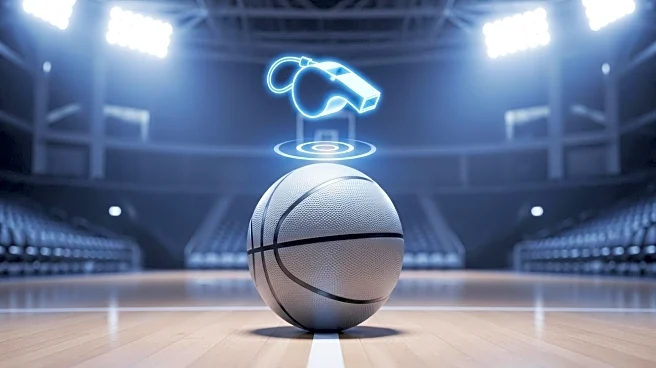What's Happening?
The NBA is increasingly utilizing technology to improve the accuracy of officiating during games. The league has introduced an 'automated officiating' tool that employs cameras and sensors to track movements
on the court with high precision. This system uses machine learning and artificial intelligence to analyze the data collected, ensuring that calls are made correctly. The technology aims to assist human referees by handling objective calls, allowing them to focus on more complex judgment plays. This initiative is part of a broader trend in sports, where technology is being used to enhance officiating accuracy and transparency.
Why It's Important?
The integration of automated officiating tools in the NBA represents a significant shift towards technology-driven sports management. By improving call accuracy, the league aims to enhance the overall quality of the game, reduce review times, and increase transparency for players and fans. This move could set a precedent for other sports leagues, potentially leading to widespread adoption of similar technologies. The use of technology in officiating also highlights the growing role of data analytics in sports, which could influence coaching strategies and player performance evaluations.
What's Next?
As the NBA continues to refine its automated officiating system, further developments are expected in communication methods between referees and the technology. The league is exploring the use of earpieces and smartwatches to streamline decision-making processes. Additionally, the introduction of sensors in basketballs during summer league games suggests ongoing experimentation with data collection methods. These advancements may lead to more sophisticated systems that could further transform officiating in basketball and other sports.
Beyond the Headlines
The adoption of automated officiating tools raises questions about the balance between human judgment and technological precision in sports. While technology can enhance accuracy, it also shifts the traditional role of referees, potentially affecting their training and job dynamics. Moreover, the reliance on technology could spark debates about the authenticity of sports experiences and the potential for over-reliance on data-driven decisions.









